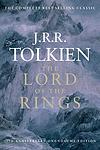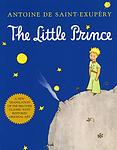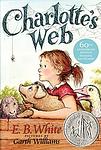The Greatest "Fictional Location" Books of All Time
Click to learn how this list is calculated.
This list represents a comprehensive and trusted collection of the greatest books. Developed through a specialized algorithm, it brings together 284 'best of' book lists to form a definitive guide to the world's most acclaimed books. For those interested in how these books are chosen, additional details can be found on the rankings page.
Genres
The "Fictional Location" category in books encompasses a broad range of literary works that are set in places conjured entirely from the imagination of the author, rather than real-world locations. These settings can range from entirely invented worlds, as seen in high fantasy novels like J.R.R. Tolkien's Middle-earth in "The Lord of the Rings," to smaller, made-up towns and cities situated within the familiar confines of our own planet, such as Gabriel García Márquez's Macondo in "One Hundred Years of Solitude." The allure of this category lies in the author's ability to craft unique environments that operate under their own set of rules, cultures, and histories, providing a rich backdrop for storytelling that can explore themes and narratives unconstrained by the limitations of reality. Whether these locations offer an escape to magical realms, dystopian futures, or alternate histories, books in the "Fictional Location" category invite readers to embark on journeys to places that exist only in the far reaches of the writer's creativity and the reader's imagination.
Countries
Date Range
Reading Statistics
Click the button below to see how many of these books you've read!
Download
If you're interested in downloading this list as a CSV file for use in a spreadsheet application, you can easily do so by clicking the button below. Please note that to ensure a manageable file size and faster download, the CSV will include details for only the first 500 books.
Download-
1. One Hundred Years of Solitude by Gabriel Garcia Marquez
This novel is a multi-generational saga that focuses on the Buendía family, who founded the fictional town of Macondo. It explores themes of love, loss, family, and the cyclical nature of history. The story is filled with magical realism, blending the supernatural with the ordinary, as it chronicles the family's experiences, including civil war, marriages, births, and deaths. The book is renowned for its narrative style and its exploration of solitude, fate, and the inevitability of repetition in history.
-
2. Nineteen Eighty Four by George Orwell
Set in a dystopian future, the novel presents a society under the total control of a totalitarian regime, led by the omnipresent Big Brother. The protagonist, a low-ranking member of 'the Party', begins to question the regime and falls in love with a woman, an act of rebellion in a world where independent thought, dissent, and love are prohibited. The novel explores themes of surveillance, censorship, and the manipulation of truth.
-
3. Wuthering Heights by Emily Brontë
This classic novel is a tale of love, revenge and social class set in the Yorkshire moors. It revolves around the intense, complex relationship between Catherine Earnshaw and Heathcliff, an orphan adopted by Catherine's father. Despite their deep affection for each other, Catherine marries Edgar Linton, a wealthy neighbor, leading Heathcliff to seek revenge on the two families. The story unfolds over two generations, reflecting the consequences of their choices and the destructive power of obsessive love.
-
4. The Lord of the Rings by J. R. R. Tolkien
This epic high-fantasy novel centers around a modest hobbit who is entrusted with the task of destroying a powerful ring that could enable the dark lord to conquer the world. Accompanied by a diverse group of companions, the hobbit embarks on a perilous journey across Middle-earth, battling evil forces and facing numerous challenges. The narrative, rich in mythology and complex themes of good versus evil, friendship, and heroism, has had a profound influence on the fantasy genre.
-
5. Alice's Adventures in Wonderland by Lewis Carroll
This novel follows the story of a young girl named Alice who falls down a rabbit hole into a fantastical world full of peculiar creatures and bizarre experiences. As she navigates through this strange land, she encounters a series of nonsensical events, including a tea party with a Mad Hatter, a pool of tears, and a trial over stolen tarts. The book is renowned for its playful use of language, logic, and its exploration of the boundaries of reality.
-
6. Jane Eyre by Charlotte Bronte
The novel follows the life of Jane Eyre, an orphan who is mistreated by her relatives and sent to a charity school. As she grows up, Jane becomes a governess at Thornfield Hall, where she falls in love with the brooding and mysterious Mr. Rochester. However, she soon learns of a dark secret in his past that threatens their future together. The story is a profound exploration of a woman's self-discovery and her struggle for independence and love in a rigid Victorian society.
-
7. Middlemarch by George Eliot
Set in the fictitious English town of Middlemarch during the early 19th century, the novel explores the complex web of relationships in a close-knit society. It follows the lives of several characters, primarily Dorothea Brooke, a young woman of idealistic fervor, and Tertius Lydgate, an ambitious young doctor, who both grapple with societal expectations, personal desires, and moral dilemmas. Their stories intertwine with a rich tapestry of other townsfolk, reflecting themes of love, marriage, ambition, and reform, making a profound commentary on the human condition.
-
8. The Divine Comedy by Dante Alighieri
In this epic poem, the protagonist embarks on an extraordinary journey through Hell (Inferno), Purgatory (Purgatorio), and Paradise (Paradiso). Guided by the ancient Roman poet Virgil and his beloved Beatrice, he encounters various historical and mythological figures in each realm, witnessing the eternal consequences of earthly sins and virtues. The journey serves as an allegory for the soul's progression towards God, offering profound insights into the nature of good and evil, free will, and divine justice.
-
9. Frankenstein by Mary Shelley
This classic novel tells the story of a young scientist who creates a grotesque but sentient creature in an unorthodox scientific experiment. The scientist, horrified by his creation, abandons it, leading the creature to seek revenge. The novel explores themes of ambition, responsibility, guilt, and the potential consequences of playing God.
-
10. The Trial by Franz Kafka
The book revolves around a bank clerk who wakes one morning to find himself under arrest for an unspecified crime. Despite not being detained, he is subjected to the psychological torment of a bizarre and nightmarish judicial process. The story is a critique of bureaucracy, exploring themes of guilt, alienation and the inefficiency of the justice system.
-
11. Brave New World by Aldous Huxley
Set in a dystopian future, the novel explores a society where human beings are genetically bred and pharmaceutically conditioned to serve in a ruling order. The society is divided into five castes, each with its specific roles. The narrative follows a savage who rejects the norms of this new world order and struggles to navigate the clash between the values of his upbringing and the reality of this technologically advanced, emotionless society. His resistance prompts a deep examination of the nature of freedom, individuality, and happiness.
-
12. Gulliver's Travels by Jonathan Swift
This classic satire follows the travels of a surgeon and sea captain who embarks on a series of extraordinary voyages. The protagonist first finds himself shipwrecked on an island inhabited by tiny people, later discovers a land of giants, then encounters a society of intelligent horses, and finally lands on a floating island of scientists. Through these bizarre adventures, the novel explores themes of human nature, morality, and society, offering a scathing critique of European culture and the human condition.
-
13. Slaughterhouse-Five by Kurt Vonnegut
The novel follows the life of Billy Pilgrim, a World War II veteran who has become "unstuck in time," experiencing his life events out of order. This includes his experiences as a prisoner of war in Dresden during the Allies' firebombing, his post-war life as a successful optometrist, his abduction by aliens from the planet Tralfamadore, and his eventual death. The book is a critique of war and a demonstration of the destructive nature of time, with a nonlinear narrative that reflects the chaos and unpredictability of life.
-
14. Lord of the Flies by William Golding
A group of British boys are stranded on an uninhabited island after their plane crashes during wartime. Initially, they attempt to establish order, creating rules and electing a leader. However, as time passes, their civility erodes, and they descend into savagery and chaos. The struggle for power intensifies, leading to violence and death. The novel explores themes of innocence, the inherent evil in mankind, and the thin veneer of civilization.
-
15. Tristram Shandy by Laurence Sterne
The novel is a humorous, rambling narrative that chronicles the life of Tristram Shandy. The story is filled with digressions, anecdotes, and eccentric characters, as Tristram often interrupts his own tale to interject commentary or to recount stories from his family's past. Despite the seemingly haphazard structure, the novel is a clever exploration of narrative form and a satirical critique of traditional biographies and novels.
-
16. The Little Prince by Antoine de Saint-Exupéry
A young prince from a tiny asteroid embarks on a journey across the universe, visiting various planets and meeting their strange inhabitants. Along the way, he learns about the follies and absurdities of the adult world, the nature of friendship, and the importance of retaining a childlike wonder and curiosity. His journey eventually leads him to Earth, where he befriends a fox and learns about love and loss before finally returning to his asteroid.
-
17. Animal Farm by George Orwell
"Animal Farm" is a satirical fable set on a farm where the animals revolt, overthrow their human farmer, and take over the running of the farm for themselves. The story is an allegory of the Russian Revolution and the rise of Stalin, and the tale is told by the animals that inhabit the farm, primarily pigs who become the ruling class. Despite their initial attempts at creating an equal society, corruption and power ultimately lead to a regime as oppressive as the one they overthrew.
-
18. The Hitchhiker's Guide to the Galaxy by Douglas Adams
This comedic science fiction novel follows the intergalactic adventures of an unwitting human, Arthur Dent, who is rescued just before Earth's destruction by his friend Ford Prefect, a researcher for a galactic travel guide. Together, they hitch a ride on a stolen spaceship, encountering a range of bizarre characters, including a depressed robot and a two-headed ex-president of the galaxy. Through a series of satirical and absurd escapades, the book explores themes of existentialism, bureaucracy, and the absurdity of life, all while poking fun at the science fiction genre and offering witty commentary on the human condition.
-
19. The Handmaid's Tale by Margaret Atwood
Set in a dystopian future, this novel presents a society where women are stripped of their rights and are classified into various roles based on their fertility and societal status. The protagonist is a handmaid, a class of women used solely for their reproductive capabilities by the ruling class. The story is a chilling exploration of the extreme end of misogyny, where women are reduced to their biological functions, and a critique of religious fundamentalism.
-
20. The Aeneid by Virgil
This epic poem tells the story of Aeneas, a Trojan who travels to Italy, where he becomes the ancestor of the Romans. It includes a series of prophecies about Rome's future and the deeds of heroic individuals, and is divided into two sections, the first illustrating the hero's journey and the second detailing the wars and battles that ensue as Aeneas attempts to establish a new home in Italy. The narrative is deeply imbued with themes of duty, fate, and divine intervention.
-
21. A Clockwork Orange by Anthony Burgess
This novel follows the life of a violent young man named Alex, who is part of a youth subculture in a dystopian future England. Alex and his gang engage in a nightmarish spree of rape, assault, and robbery, until he is arrested and subjected to a psychological experiment by the government to "cure" him of his violent tendencies. The novel explores themes of free will, morality, and the nature of evil, while using a unique slang language invented by the author.
-
22. Waiting for Godot by Samuel Beckett
"Waiting for Godot" is a play that explores themes of existentialism, despair, and the human condition through the story of two characters, Vladimir and Estragon, who wait endlessly for a man named Godot, who never arrives. While they wait, they engage in a variety of discussions and encounter three other characters. The play is characterized by its minimalistic setting and lack of a traditional plot, leaving much to interpretation.
-
23. Pale Fire by Vladimir Nabokov
The novel is a unique blend of fiction, commentary, and poetry, presented as a 999-line poem written by a fictional poet, followed by an extensive commentary and foreword by his neighbor and academic colleague. The novel blurs the line between reality and fiction, as the commentator's notes reveal an alternative narrative, one of exile, intrigue, and murder. The book is a playful exploration of authorship, deception, and the nature of art.
-
24. Treasure Island by Robert Louis Stevenson
This classic adventure novel tells the story of young Jim Hawkins, who stumbles upon a treasure map and embarks on a perilous journey to find the buried treasure. Along the way, he encounters a host of memorable characters, including the cunning and treacherous Long John Silver. The narrative is filled with action, intrigue, and suspense, as Hawkins and his companions face pirates, mutiny, and other dangers in their quest for the hidden treasure.
-
25. Charlotte's Web by E. B. White
A young girl named Fern saves a runt piglet from being slaughtered and names him Wilbur. When Wilbur grows too large, he is sent to live in her uncle's barn, where he befriends a clever spider named Charlotte. When Wilbur's life is in danger again, Charlotte weaves messages into her web to convince the farmer that Wilbur is too special to kill. The book explores themes of friendship, sacrifice, and the cycle of life.
Reading Statistics
Click the button below to see how many of these books you've read!
Download
If you're interested in downloading this list as a CSV file for use in a spreadsheet application, you can easily do so by clicking the button below. Please note that to ensure a manageable file size and faster download, the CSV will include details for only the first 500 books.
Download























